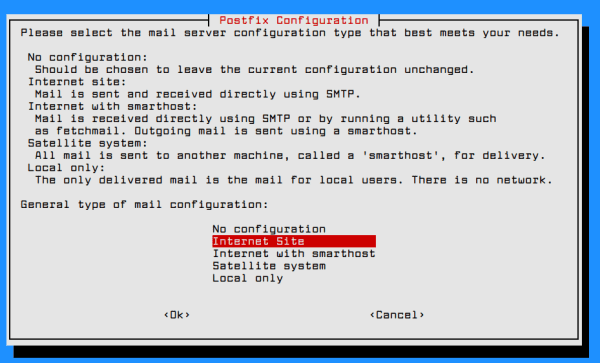Magento and WordPress are the two most prominent e-commerce platforms utilized by the world's major e-commerce websites, among a wide range of online platforms for developing an e-commerce website.Suppose you've narrowed down your options for online platforms for developing an e-commerce website to Magento WordPress. In that case, this article will help you understand the basic features and functionalities of both systems by comparing their advantages and downsides.
Let's take a quick look at the basic ideas of Magento and WordPress as e-commerce CMS platforms before moving on to the Magento vs WordPress comparison.
About WordPress
WordPress is the most famous open-source content management system (CMS) for content-driven websites such as blogs. WordPress, unlike Magento, is not a natural e-commerce platform for online business; WooCommerce, a WordPress plugin, is what makes it a robust and widely used e-commerce solution. It is known for having an easy-to-embed plugin architecture and template flexibility, in addition to being very user-friendly.
About Magento
Magento WordPress, both are built on open-source software. It is an e-commerce platform with several dedicated e-commerce features that have been trusted by tens of thousands of store owners, ranging from tiny enterprises to major multinational corporations, including some of the world's most well-known brands.
Magento provides a high level of customization and functionality, allowing merchants to customize online stores to meet their specific business needs while also providing rich features such as multi-store management, report generation, mobile commerce, etc.
Similarities between WordPress and Magento
Both have excellent content management systems in place.
Allow users to manage, amend, and add material.
They are Customizable.
Both are SEO-friendly.
Both have a large selection of attractive, customizable, and responsive themes.
Open APIs are provided for both WordPress and Magento.
Supported by a large online community.
WordPress vs. Magento
1. Ease of use and support
This is an important point when we talk about Wordpress vs Magento. WordPress and Magento are both open-source platforms that are free to use. There is no customer service included. This means you'll have to rely on their online groups and self-help documentation to get through any problems you have. Both platforms, fortunately, have sizable and active user populations. However, WordPress is obviously the winner in this case.
Overall, it has a larger and more active community, and there are plenty of self-help resources. Whatever your issue, you'll be able to discover a solution. You have access to Magento's solution partners as well. You'll have to pay a fee to hire these professionals to help you with specific assignments. Magento also offers rapid deployment packages with budgetary guidance for organizations that need to have a revenue-generating site up and running rapidly.
It's worth noting that Magento's community isn't well-managed. Bots are spamming advertisements on several topics, making it impossible to seek technical assistance without being irritated.
2. Content and Marketing Management
According to marketing and content management, WordPress outperforms Magento. WordPress is a content management system in technical terms, and it began as largely a blogging platform. WordPress can now be used to create any form of website, but its roots in blogging mean that it is capable of handling large volumes of content and media. Because blogging isn't an inbuilt function in Magento, you'd have to build a bespoke extension to support it. Content is common between WordPress vs Magento.
3. Ecommerce
Although both Magento WordPress are capable e-commerce platforms, Magento is the more powerful platform for selling online. Magento includes a number of useful sales features, such as recently viewed and compared products, free shipping options, and one-page checkout, among others.
On the other hand, WordPress has a number of e-commerce features – they just aren't built into the platform. Instead, you can install the WooCommerce plugin for WordPress, which will help you grow your e-commerce website and drive sales while requiring less technical knowledge than Magento.
4. Plugins and Extensions
Magento's marketplace offers a wide range of free and paid extensions for everything from accounting and finance to content and modifications, customer service, marketing, payment gateways and security, and site optimization. The plugin repository, which has over 58,000 free and paid plugins, is at the heart of WordPress's popularity.
Essentially, you can find WordPress plugins to satisfy all of your logistical, technological, and marketing requirements.
The amazing thing about both Magento and WordPress is how customizable they are. There's no exemption when it comes to plugins and extensions. Both platforms allow you to design your own plugin to match your individual demands regardless of your technical expertise.
5. Features of SEO
Magento excels at SEO and includes a plethora of SEO guides and prompts to get you started. Meta keywords, meta descriptions, image alt-tags, product descriptions, and snippets can all be changed at any time. Additional features such as a Google sitemap, no-follow links, and redirects aid in crawling your site by search engines. Magento is ideal for users familiar with SEO best practices because most of these tasks must be completed manually.
Both WordPress Magento, allows you to tag posts, optimize permalink structures, and add all of the necessary metadata to pages and posts. Nonetheless, WordPress' true SEO strength resides in the vast number of SEO-friendly plugins accessible. You can seamlessly bring your website into the spotlight with the help of some fantastic SEO plugins like Yoast SEO and WP Rocket.
Conclusion
Finally, after examining both platforms and putting up a comparison between Magento vs WordPress, we come to a conclusion that, depending on their functions and features, they are both correct in their own ways. Magento is a good choice if you're building a website with the primary goal of selling. WordPress is a good choice if you want to create an informational website that also sells items.
You can utilize both platforms at the same time if you want to; your online store can run on Magento, and your blogs can run on WordPress. You must use both platforms if you want to create a huge online store with content. This was all about Magento vs WordPress.
By: Brey White
.jpg)


